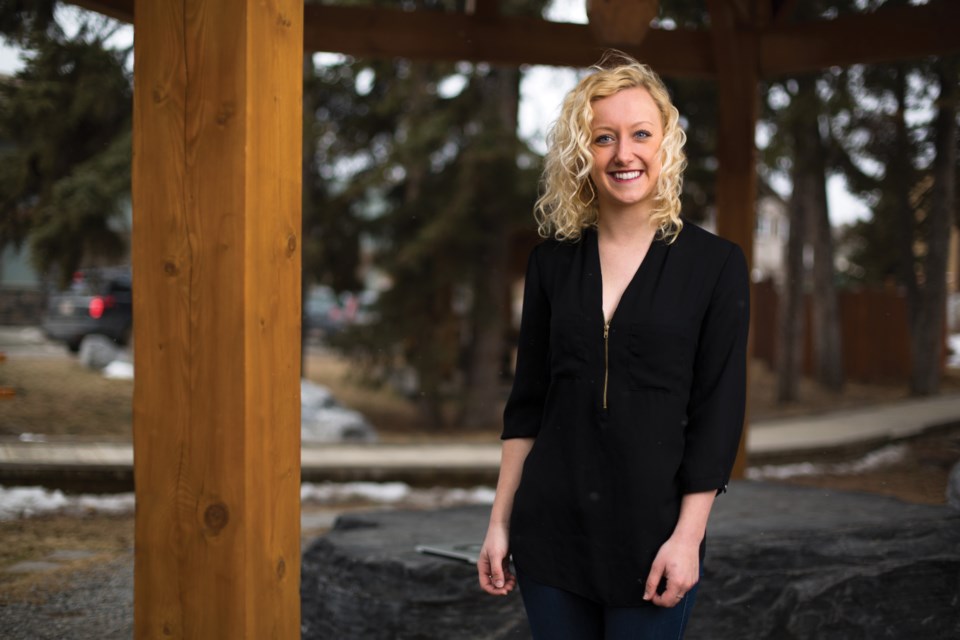CANMORE – The council of the largest municipality in the Banff-Kananaskis provincial riding is asking their MLA to reconsider speaking out against public health restrictions.
In the letter from Canmore council, Mayor John Borrowman noted COVID-19 positive cases have continued to drastically increase both locally and in the province.
“We are experiencing a rapid increase in identified COVID cases here in the Bow Valley, which has our community and Town Council very concerned,” the letter stated.
“This is particularly worrisome as we come into what is usually the busy season for our tourism-based economy.”
Canmore council wrote Rosin only days after she signed an April 7 letter with 15 other UCP MLAs calling Premier Jason Kenney’s decision “backwards” and they “do not support the additional restrictions imposed on Albertans.”
Rosin wrote in an April 7 Facebook post she had received thousands of emails and hundreds of phone calls on the concerns of citizens.
Attempts by the RMO newsroom to reach Rosin since April 7 for an interview have been unsuccessful.
After yesterday's announcement that our province would be moving backwards, not forwards, reverting back a step in our...
Posted by Miranda Rosin on Wednesday, April 7, 2021
When Kenney made the April 6 announcement for further restrictions, he noted there was likely to be pushback from members of his party, adding that any debate “be informed by facts.”
Two days after the letter, he said any member of the UCP caucus would be removed if they were to break the public health restrictions.
“I made it very clear to my caucus this morning that while we accept a diversity of opinions and I totally respect the obligation of members to represent their constituents … the government caucus could not tolerate any member counselling people to engage in civil disobedience or to break public-health measures,” Kenney said.
None of the 16 letter signees are members of Kenney’s 22-person cabinet. Though it’s not uncommon for any party member across the country to express differing opinion, the internal dissent of this size is rare at provincial and federal politics.
In Ontario, MPP Roman Baber said the January provincial lockdown was “deadlier than COVID,” he was kicked out of the Doug Ford Progressive Conservative caucus. Ford also expelled Belinda Karahalios for voting against a law to extend pandemic emergency orders, which she did because she said it gave the government too much power.
Rachel Notley, the leader of the NDP opposition, said 16 UCP members were “being irresponsible, selfish and, quite frankly, they should be ashamed.”
The restrictions were made as COVID-19 cases in the province have surged once again, especially with different variants being found throughout Alberta. Several Canadian provinces have made strict public health restrictions, including lockdowns and stay-at-home orders.
The newest regulations in Alberta reduced retail capacity to 15 per cent, stopped indoor dining at restaurants, but allows patio dining, takeout and curbside pickup. Indoor gatherings are still banned and outdoor gatherings are to have no more than 10 people.
On behalf of council, Borrowman said like Rosin, municipal elected officials have heard from residents both for and against the restrictions. However, the letter notes they’ve heard considerably more from that “we are not doing enough to curb the spread.”
While people throughout the world are exhausted and businesses are once again threatened, “the continued support in this part of your constituency remains strong for the restrictions advised by the Chief Medical Officer of Health.”
As of Friday (April 9), there were 78 confirmed cases in the Banff and Lake Louise area, 179 in Rocky View County, 49 in Canmore and seven in the MD of Bighorn, which includes parts of the Stoney Nakoda First Nation. Cochrane also had 113 active cases.
The province reported 1,521 new cases on Friday – including 674 variants – along with 333 people in the hospital, 83 in intensive care and a total of 2,007 deaths since the pandemic began.
Alberta has seen 804,475 vaccines administered, with 153,794 fully vaccinated, but still has 13,059 active cases.
Alberta Health Services also ran a temporary COVID-19 assessment site in Banff during the weekend as positive cases in the region have steadily climbed. The Town of Banff Emergency Coordination Centre has also been pushing for more vaccines to reach the Bow Valley as the popular tourism spot has continued to see visitors.
Banff town council will meet for a regular council meeting Monday, with a verbal update to be presented to council.
Rosin has been outspoken when it comes to opposing public health restrictions.
A November newsletter said “the worst of the COVID-19 health pandemic” was over when the province was reporting record numbers of new cases.
During Christmas, she visited family in Saskatchewan when Albertans were supposed to restrict their travel because of the pandemic.
The rookie MLA declined multiple interview requests with the Outlook at the time and later confirmed to Mountain FM she had left the province, but did not breach regulations since she lives alone and was permitted to visit another household for the holidays.
She wrote a column for High Country News that questioned the public health impacts of restrictions for COVID-19, saying many western societies “gambled away their longstanding values of freedom and self-determination in surrender to fear and uncertainty” and surrendered their personal freedoms to the government.
A Facebook post earlier in the year was also critical of the economic impacts to the province's attempts to curb the novel coronavirus’ spread.
Rosin was the deputy chair of the select special Public Health Act review committee that made recommendations for the province to consider last year for amendments to the act.
Canmore council ended their letter by asking Rosin to “make a determined effort to reach out to hear all perspectives in our community before taking such actions as refuting the need for continued caution in containing the virus.
“This is not a political issue, but one of public health.”





